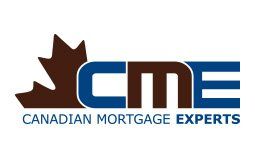the right broker for you.
Contact Us
We will get back to you as soon as possible
Please try again later
Contact Us
We will get back to you as soon as possible
Please try again later
Is the Housing Market Turning a Corner? | August 2018
While Vancouver area home sales are still posting year-over-year declines, signs are appearing in the Greater Toronto Area that the worst of the housing correction is now over.
Experts say that likely won’t be enough to stave off a slowdown in national GDP growth, however, which in part will be impacted by the housing market’s weak performance over the first half of the year.
Is the Housing Market Turning a Corner?
Following weak home sales activity for the first half of the year, recent data is suggesting the housing market may be adapting to new mortgage rules and higher rates and turning a corner for H2.
“Early data for the month of July reported this week was mixed, but overall suggest that the worst of the housing correction is in the rear-view mirror,” senior TD economist James Marple wrote in a research note.
GTA home sales were up 6.6% year-over-year in July, with the sales-to-new-listings ratio rising to 50%, up from a trough of 44 per cent in March. Prices are also up 3.1% from June.
“All told, there are still some soft spots on the landscape, and temporary factors appear likely to return in the third quarter (shutdowns in the Alberta oil patch),” he added. “Still, for the year as a whole, the Canadian economy looks to maintain above-trend growth.”
Last month TD economist Ksenia Bushmeneva also predicted a turnaround for the second half of 2018. “Historically, the impact of policy changes is swift but short-lived, and it seems that the housing market is once again finding its footing. We expect that resale activity hit its trough in Q2 and will begin to gradually recover thereafter,” Bushmeneva wrote.
Marple added that with inflation above 2% and unemployment “close to a historical nadir, the case for continued increases in interest rates remains solid.” OIS markets are currently 32% priced in for a rate hike at the BoC’s next meeting on September 5.
GVA, GTA Housing Slowdowns Affecting National Growth
Lower home sales in Canada’s two largest housing markets this year are causing a ripple effect throughout the Canadian economy, the Globe and Mail reported.
Residential real estate activity accounts for roughly 7% of this country’s GDP, the article noted, and quoted economists who say a drop in resale activity is causing many to revise down growth forecasts.
National resale activity in the first half of 2018 fell 14% from 2017, while Greater Vancouver and the Greater Toronto Area saw drops of 25.5% and 27%, respectively. While activity in the GTA picked up in June and July, Vancouver activity is still down 30% from last year.
Although resale activity has less of an impact on GDP compared to new home construction, RBC senior economist Robert Hogue said it’s still enough to reduce the rate of GDP growth.
“That slowdown is having an effect,” Hogue noted in a research note. “It may not have the effect we might think intuitively, like it is going to take GDP [growth] down to negative. But not contributing to growth, I would say, is a pretty significant development.”
Hogue forecasts national GDP growth will slow to 1.9% in 2018 from 3% last year, and growth in Ontario to fall to 2% from 2.7% last year.
Vancouver Residents Continue to Blame Foreign Buyers for Housing Crisis
An overwhelming majority of Vancouver residents believe foreign buyers are responsible for the city’s housing crisis, despite studies showing that they play a relatively small role in house price appreciation.
A new poll from Insights West found that 90% of Metro Vancouverites believe the city is in the midst of a housing crisis, with 84% believing foreign homebuyers are responsible for the current situation.
Other factors residents cite include:
- Population growth (80%)
- Shadow flipping (76%)
- Money laundering (73%)
- City and municipal zoning bylaw (63%)
- Immigration (58%)
- Lack of available land due to geography (53%)
- Interprovincial migration (46%)
“There is no doubt that Metro Vancouver residents believe that we are in a major crisis when it comes to housing, and the issue is dominating public opinion and the public agenda,” Insights West President Steve Mossop said in a release. “What is surprising though are the misconceptions that exist with respect to the culprits and causes of this crisis.”
This article was written by Steve Huebl from Canadian Mortgage Trends, it was originally published thereon August 8th 2018, but we like the cut of Steve’s jib, so we included it here on our blog. We roll like that.


QUICK LINKS
HEAD OFFICE

Copyright © 2023 DLC Canadian Mortgage Experts. All Rights Reserved | Privacy & Content Policy

